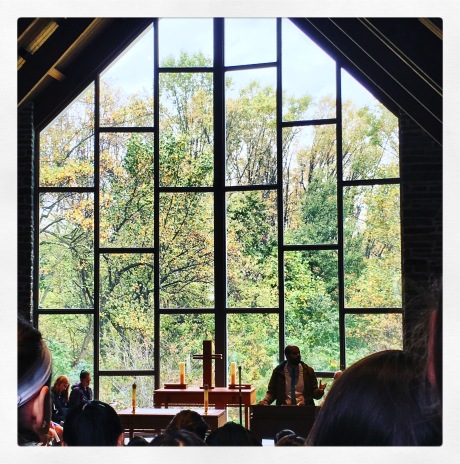So, it’s the end of my first trimester at St Timothy’s School this coming Friday (Nov. 18th 2016)! And what a trimester it has been…
As part of our employment agreement, we have to submit a “self-evaluation identifying three strengths, three areas for improvement, and an action plan to support our professional development”, so here goes!
Three strengths:
1- My rapport with the students and the ability to establish relationships with them: I love the students at this school, and I feel like I have quickly built a solid connection with them all…
2- My use of the classroom facilities and resources: I have quickly embraced the new work space, I love that I have a massive National Geographic World Map in my classroom (picture below):
This map allows me to integrate lots of World Geography in my teaching of World History and makes it much easier to connect both disciplines (which are absolutely interdependent). My use of the technological facilities is also another one of my strengths: I enjoy using the EnoBoard and EasiTeach to create notes for my students to access after class or if they’re absent, as well as of course my expertise in integrating iPads in the classroom (all students have iPads = woohoo)!
3- My embrace of the community duties and responsibilities: I believe I have a very positive attitude and I have readily embraced the extra duties that come with working at a boarding school like roaming duty on certain weekends, organizing activities like dance classes for students, putting on performances for International Festival etc…
Three areas for improvement:
1- Using more differentiated teaching methods: I believe I do an ‘ok’ job when it comes to differentiating my instruction. However, now that the trimester is over and I have gotten to know my students better and assessed a lot of their work, I’m starting to see more differences in learning styles and learning needs and I need to reflect on and adjust my instruction accordingly.
2- Providing more support for my advisory group: I believe I can sometimes get bogged down with all the grading, lesson-planning etc, and forget to check up on my advisory group members, though I enjoy being their adviser very very much!
3- Allowing for more inquiry in my classes: I sometimes get carried away with how much content I have to teach in my IB DP classes, and would like to better plan my lessons to allow for further inquiry. In my MYP classes, I do sometimes stress about the content I have to cover and miss out on plenty of opportunities for further inquiry, even though the MYP class should not be so content-heavy. However, I have a rigorous curriculum I have received upon arrival and there is an expectation to go through ‘most’ of it.
Action plan to support my professional development:
1- Undertake MYP training as soon as possible: I enjoy online IB training modules and need to undertake MYP training soon to allow me to improve my instructional and assessment methods in the MYP classroom.
2- Continue building my library of instructional videos for IB DP Economics: I believe I need to make more used of flipped teaching methods to free up class time for further inquiry, and this means I need to update and add to my library of instructional videos on YouTube (an example of a playlist is here).
3- Attend a workshop or undertake an online training module on incorporating inquiry in teaching IB DP Economics: I believe networking with other teachers and see what they do to incorporate inquiry in the DP classrooms may benefit me a lot and give me plenty of ideas.
This Friday is the end of my first trimester at St. Timothy’s School and also my three month-iversary since arriving to the US. Here’s to another great trimester!


























